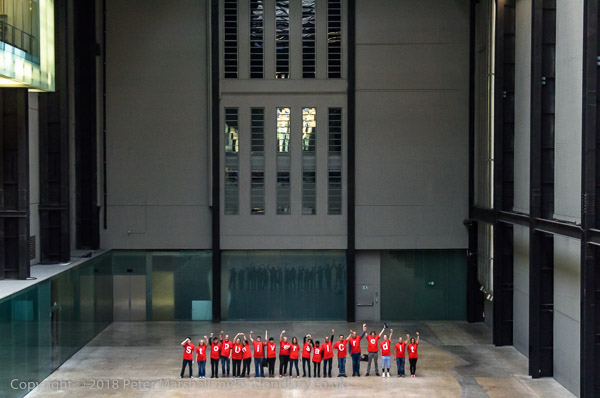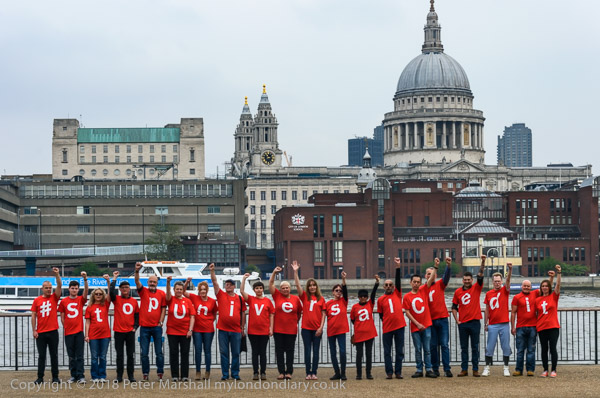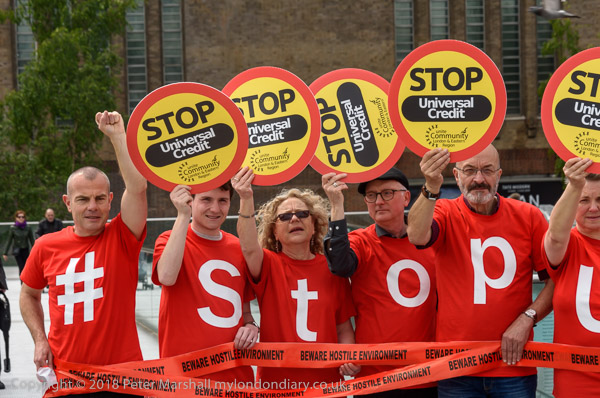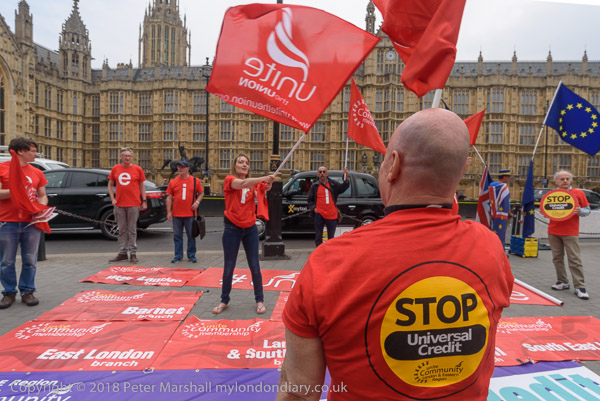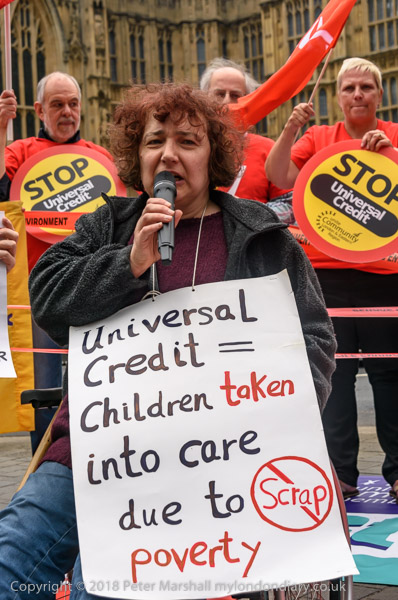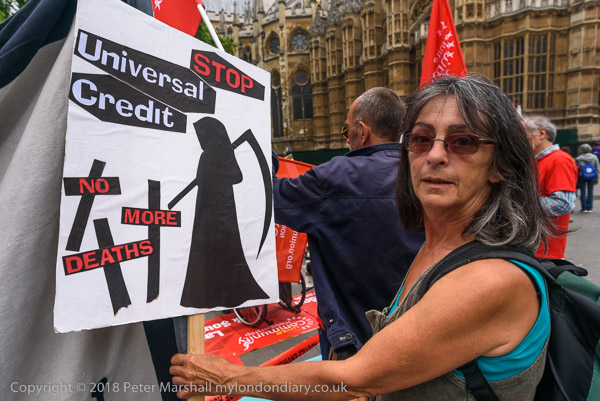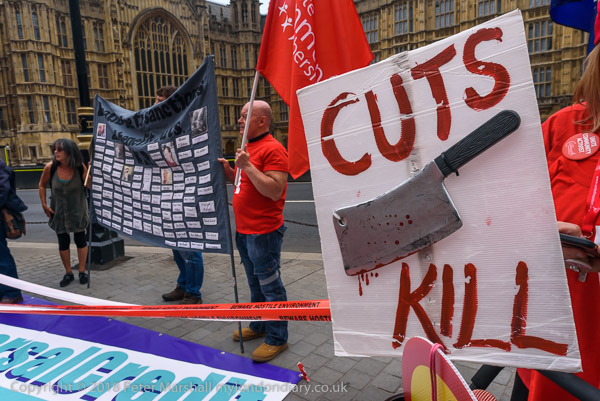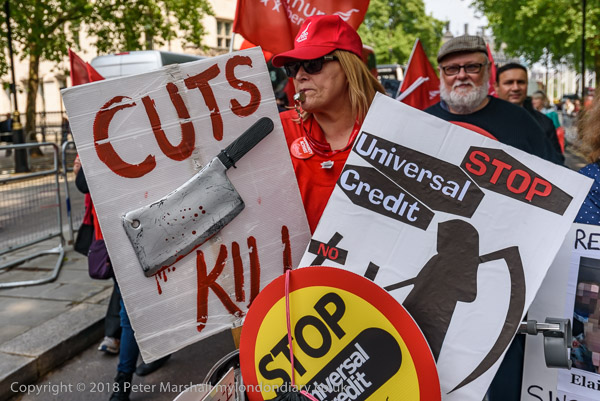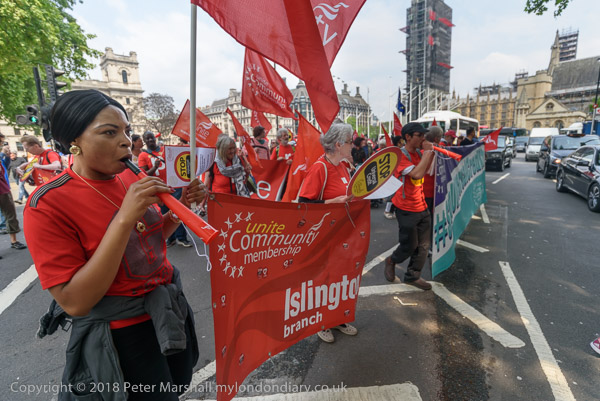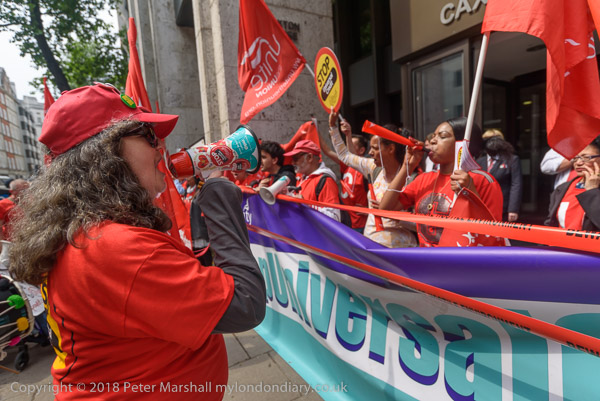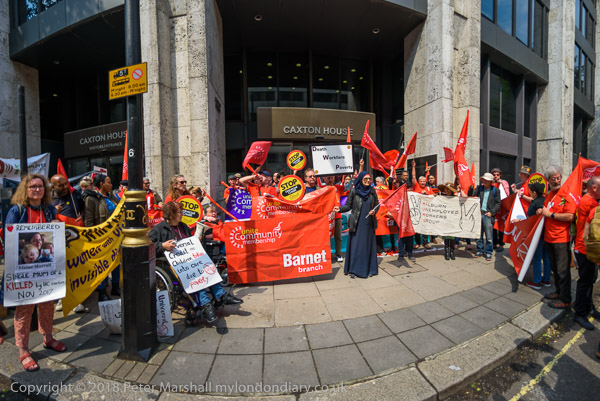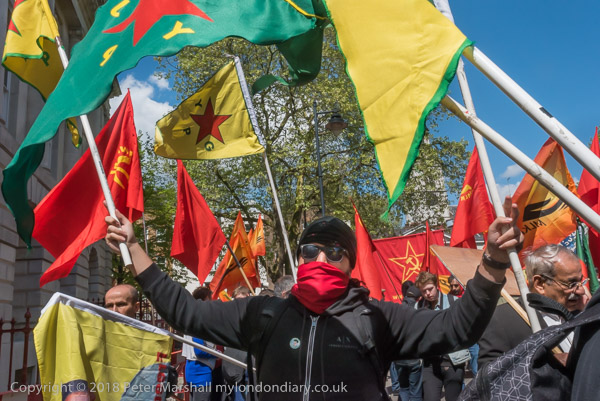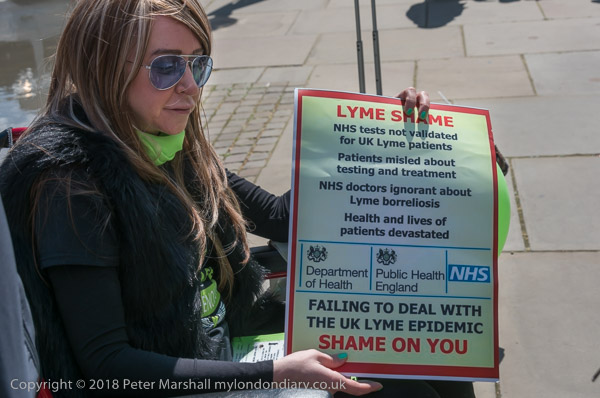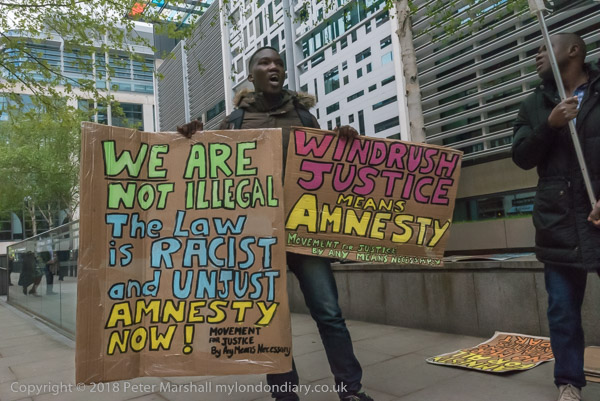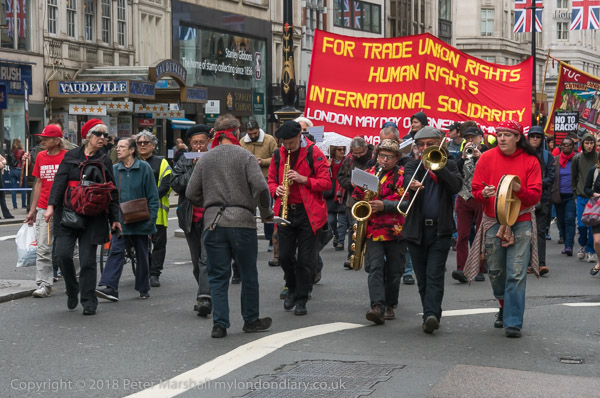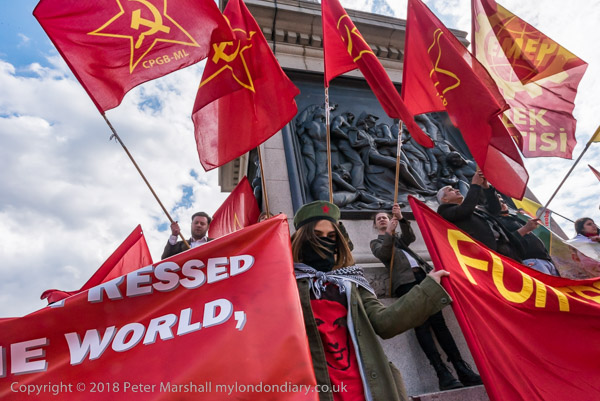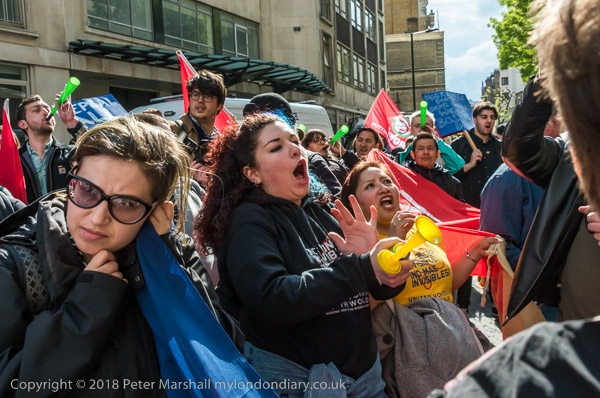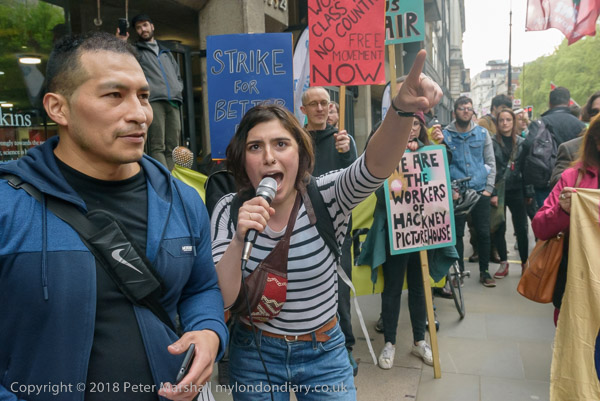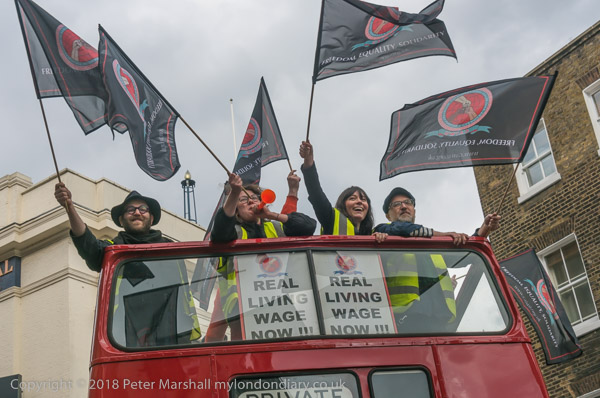Royal College of Music, Al Quds: I photographed two unrelated protests on Friday 10th July 2015. The first was calling for decent pay and conditions for outsourced workers and the second was the annual Al Quds day march.
IWGB protest at Royal College of Music – Kensington
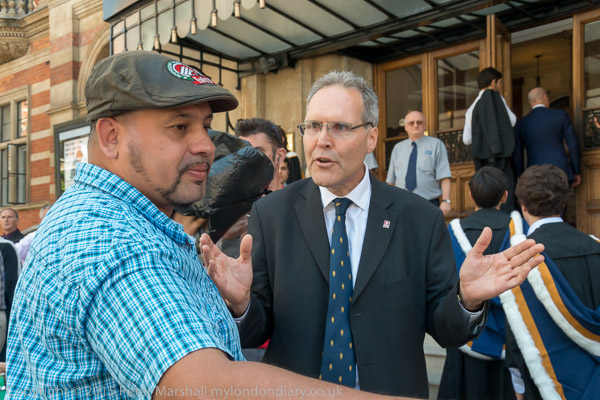
Outsourced cleaners and other low paid workers at the Royal College of Music immediately south of the Albert Hall in South Kensington belonging to the IWGB were protesting to get similar conditions of sick pay, holidays and pension to workers employed directly by the RCM.
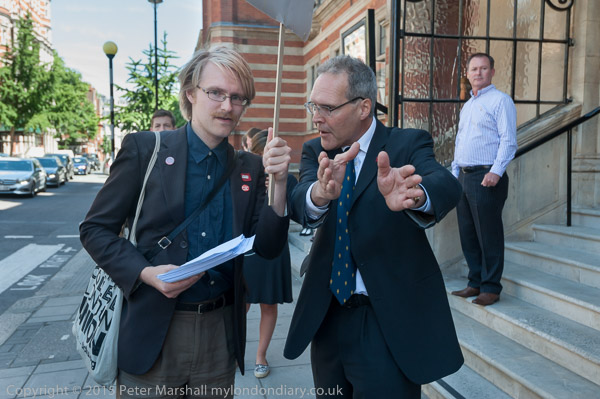
The Independent Workers’ Union of Great Britain is a registered trade union which organises cleaners, porters, hospitality workers, domestic workers and other precarious workers in a number of sectors. It is a grass-roots union run by and representing mainly low paid migrant workers in London and has proved effective in getting better pay and conditions for these groups of workers who have largely been neglected by the larger traditional unions, who have often seemed more concerned with preserving differentials in pay than in improving the lot of the lowest paid.
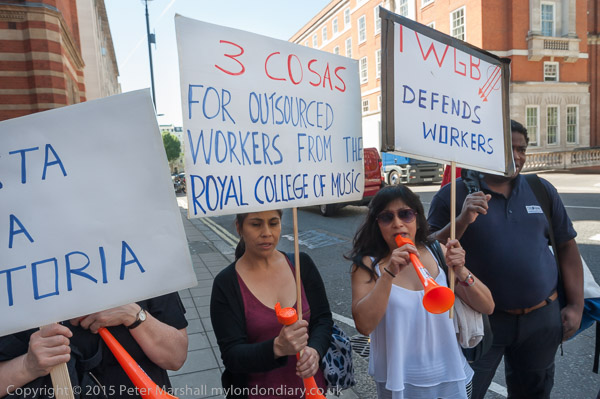
The IWGB had called for talks with the RCM management and their employers to discuss their claims, offering to call off the protests if they agreed to this. But the employers had refused to recognise the IWGB or to hold talks with them.
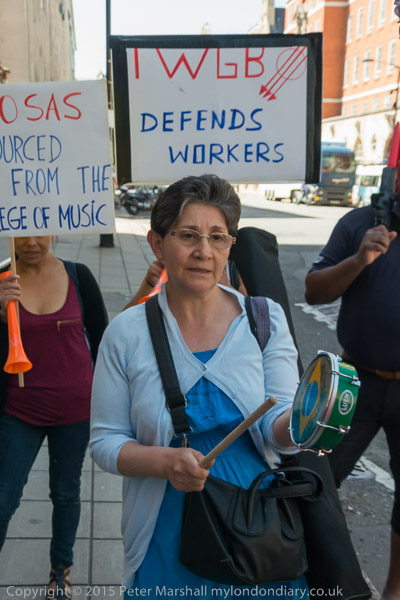
So the IWGB and supporters came and held a noisy protest outside the College entrance, handing out leaflets about why they were protesting to those entering the College for a graduation ceremony. RCM security tried to move them further away where the protest would probably not have been heard inside, but they refused to move, while taking care not to impede those entering or leaving the college.
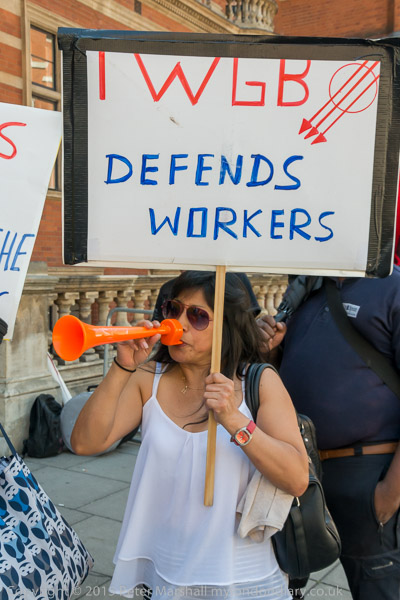
One woman came out to argue with the protesters, telling them to go away and eventually lost her temper and kicked one of them. The RCM’s head of security quickly led her away. The protest was continuing when I left for my next event.
IWGB protest at Royal College of Music
Al Quds Day march – Portland Place to US Embassy

The annual Al Quds Day march on the last Friday of Ramadan, organised by the Islamic Human Rights Commission gathered close to BBC Broadcasting House, marching from there to a rally at the US Embassy, calling for justice and freedom for Palestine.
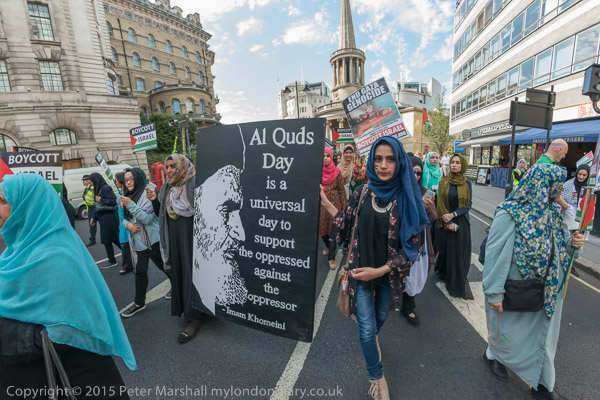
As I’ve written in previous posts, he celebration of Al Quds Day on the last Friday of Ramadan was introduced by Ayatollah Khomeini in Iran 1979 and spread from there to other countries. The march in London is organised by the IHRC which has received some support from the Iranian regime.
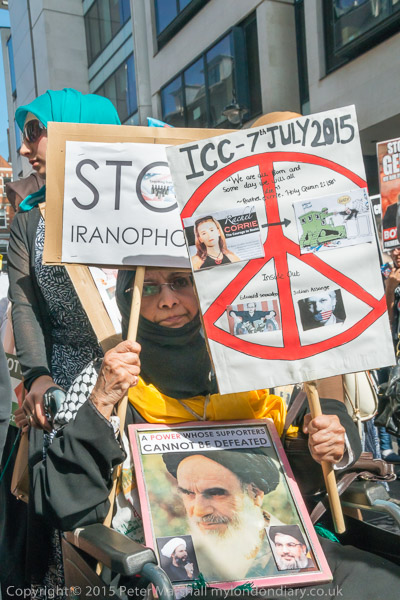
As usual, most of the banners and placards and the chanting on the march were calling for freedom for Palestine, and there were many placards against Israeli violence in Gaza and the West Bank, and calling for a boycott of Israel, a movement which seems to be growing in strength.
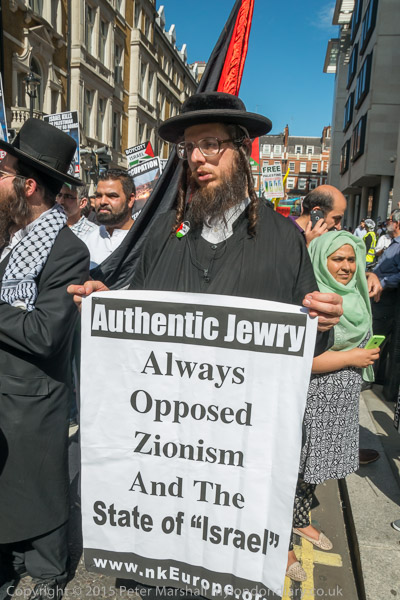
This year I saw few celebrating Khomeini and fewer Hezbollah flags and badges than in some previous years. As usual the Neturei Karta were prominent with their anti-Zionist placards stating that ‘Authentic Jewry Always Opposed Zionism And the State of “Israel”‘, but I found no evidence for anti-Semitism, which opponents of the march always charge it with.
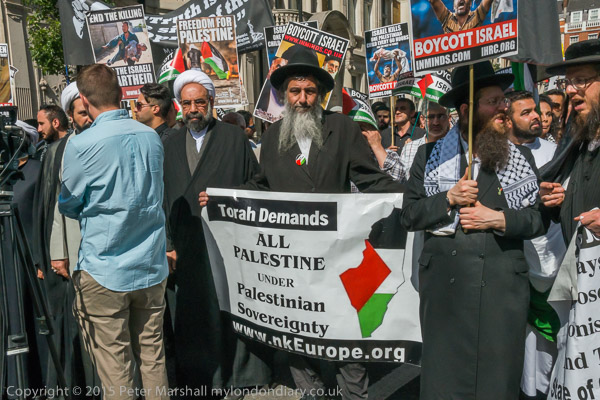
Perhaps because the march was on a Friday there were fewer Zionists protesting against the march, and I only saw one man who was protected by march stewards and then led away by police. I imagine there would have been more waiting to protest against the march when it reached the US Embassy, but I left before then.
